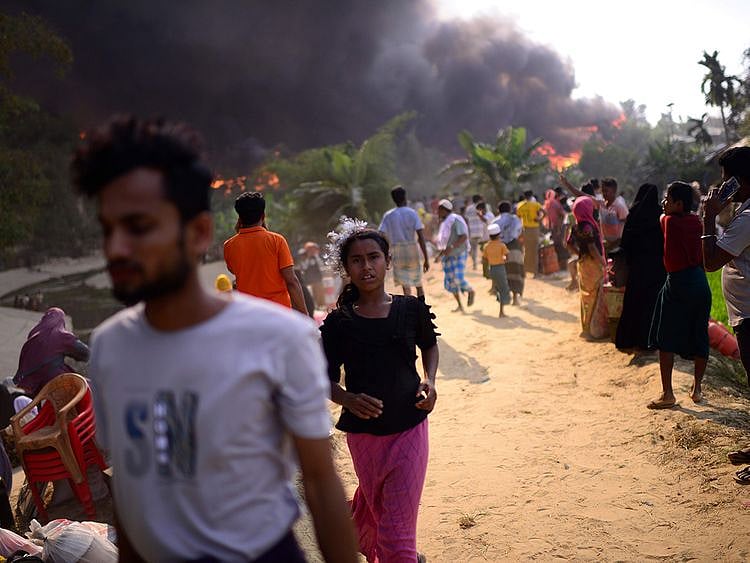Rohingya Crisis: Escaping genocide, facing ongoing struggles
Bangladesh and India must react fairly in support of this much-persecuted minority

The Rohingya people are a stateless ethnic group who predominantly reside in Rakhine State, Myanmar. For centuries, the Rohingya, a Muslim ethnic minority, have inhabited predominantly Buddhist Myanmar, historically known as Burma.
Despite their long-standing presence in the region, the Rohingya remain unrecognised as an official ethnic group and have been systematically denied citizenship since 1982, rendering them the largest stateless population on the planet.
The Rohingya genocide of 2017 by the junta in Myanmar forced more than two million to seek refuge in neighbouring countries with the brunt of the refugee influx being borne by Bangladesh already heavily populated country ballooned by more than one million Rohingya refugees.
Since 1982, the Rohingya ethnic group that had been peacefully living and working in Myanmar suddenly found themselves stateless with a change of law that denied them nationality.
Bloodshed and destruction
In Myanmar, most Rohingya have no legal identity or citizenship and statelessness remains a significant concern. Rohingya children in Rakhine State, meanwhile, have been hemmed in by violence, forced displacement, and restrictions on freedom of movement.
Stripped of legal recognition, Rohingya families face a harrowing reality, devoid of fundamental rights and safeguarded protections. This leaves them alarmingly susceptible to exploitation, as well as various forms of abuse including sexual and gender-based violence.
In 2013, an AP journalist reported that a mob armed with swords and knives invaded a predominantly Muslim village, striking at Muslims as they went along and burnt down their homes.
There were many acts of bloodshed and destruction. One of the victims described the outcome of those attacks. “After most of the villages had been burnt by the mob, the notorious security did not allow us to move from one village to another village to look for lost relatives or allow us to mourn our dead. If the security catches one of us doing that, they will put the innocent Rohingya behind bars indefinitely without charges."
A mass exodus
The violence and restrictions intensified in August 2017 causing a mass exodus of the survivors to adjacent countries — India, Malaysia, and Bangladesh quickly saw a huge influx of these refugees, with Bangladesh taking the lion’s share.
Appropriately called the most persecuted minority in the world, unable to claim citizenship in a country that refuses to recognise them, the Rohingyas were subject to beatings, rape, abuse, and displacement from their homes, and many were simply gunned down and killed by army troopers.
The horrors of genocide were in full view of the world as the conflict was covered by many media outlets. Unfortunately, there was not more than a whimper of protest while the killings were going on.
Those Rohingya refugees that managed to escape to India face various challenges. This not only hampers their integration into society but also places them at risk of being deported back to Myanmar. In Nuh, the only Muslim-majority district in the state of Haryana in India, Rohingya refugees are reportedly living in fear of detention.
According to a news report, a refugee there who requested anonymity stated that the community was feeling anxious. “We fled from ethnic cleansing in Myanmar, yet we are still living in fear.”
Recently, reports are emerging that the fate of the displaced Rohingya in Bangladesh camps is not much better. According to human rights group NGO Fortify Rights, Rohingya people living in refugee camps in the Bangladeshi city of Cox’s Bazar are being sometimes ‘arbitrarily detained’.
Bangladesh and India must react fairly in support of this much-persecuted minority.
— Tariq A. Al Maeena is a Saudi sociopolitical commentator. He lives in Jeddah, Saudi Arabia. Twitter: @talmaeena
Sign up for the Daily Briefing
Get the latest news and updates straight to your inbox
Network Links
GN StoreDownload our app
© Al Nisr Publishing LLC 2026. All rights reserved.